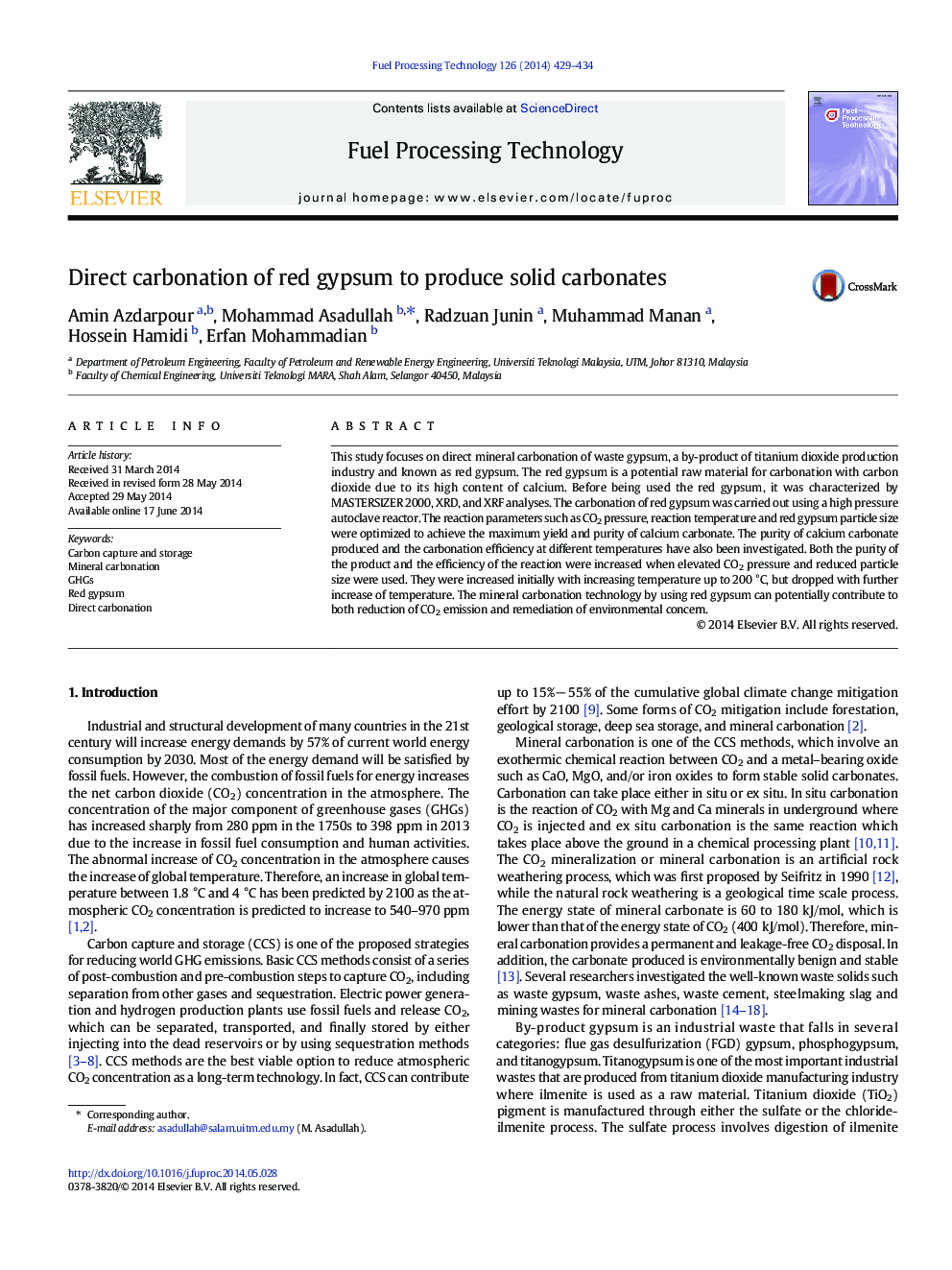| Article ID | Journal | Published Year | Pages | File Type |
|---|---|---|---|---|
| 209742 | Fuel Processing Technology | 2014 | 6 Pages |
•Industrial waste (red gypsum) can be effectively used for direct carbonation.•Direct carbonation of red gypsum produced both calcium carbonate and iron carbonate.•Carbonation efficiency and carbonates purity increased with pressure and particle size reduction.•Carbonation efficiency and carbonates purity had two different behaviors with temperature.
This study focuses on direct mineral carbonation of waste gypsum, a by-product of titanium dioxide production industry and known as red gypsum. The red gypsum is a potential raw material for carbonation with carbon dioxide due to its high content of calcium. Before being used the red gypsum, it was characterized by MASTERSIZER 2000, XRD, and XRF analyses. The carbonation of red gypsum was carried out using a high pressure autoclave reactor. The reaction parameters such as CO2 pressure, reaction temperature and red gypsum particle size were optimized to achieve the maximum yield and purity of calcium carbonate. The purity of calcium carbonate produced and the carbonation efficiency at different temperatures have also been investigated. Both the purity of the product and the efficiency of the reaction were increased when elevated CO2 pressure and reduced particle size were used. They were increased initially with increasing temperature up to 200 °C, but dropped with further increase of temperature. The mineral carbonation technology by using red gypsum can potentially contribute to both reduction of CO2 emission and remediation of environmental concern.
